FGM: 'I'll save another girl by talking about female genital mutilation'
- Published
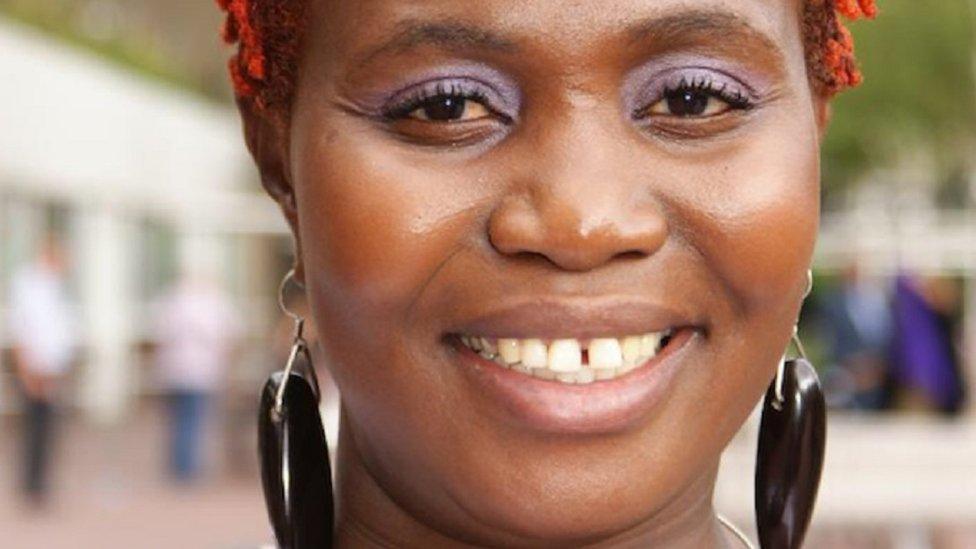
Sarian Karim-Kamara has seen a "great shift" in awareness about FGM in the UK
As the huge task of ending female genital mutilation enters another year, a survivor and a detective explain how they became dedicated to the cause - and say grassroots activism is vital.
Growing up in Sierra Leone, Sarian Karim-Kamara knew girls who had been through a secret ritual, which meant they were considered women.
They had become part of the respected Bondo society and she was not allowed to sit with them.
Aged 11, it was her turn, along with her sisters and cousins.
The night before, she was very excited as it felt like a wedding celebration, with a "boxful" of clothes and gifts prepared for them.
This article contains descriptions some readers may find upsetting
"I didn't know what was involved, I just knew I am going to become a woman and I would feel accepted into my community," Mrs Karim-Kamara, now 45, remembered.
But after ceremonies of music and drumming, in which she danced, she was shocked to be pinned down and cut between her legs. She bled for three days afterwards and, in her case, the cutting had to be repeated.
The whole experience was "so painful" and traumatic.
Returning home, she said she became a "very angry child" and the seeds of activism were sown. She began to rebel, soon warning other girls: "Don't go".
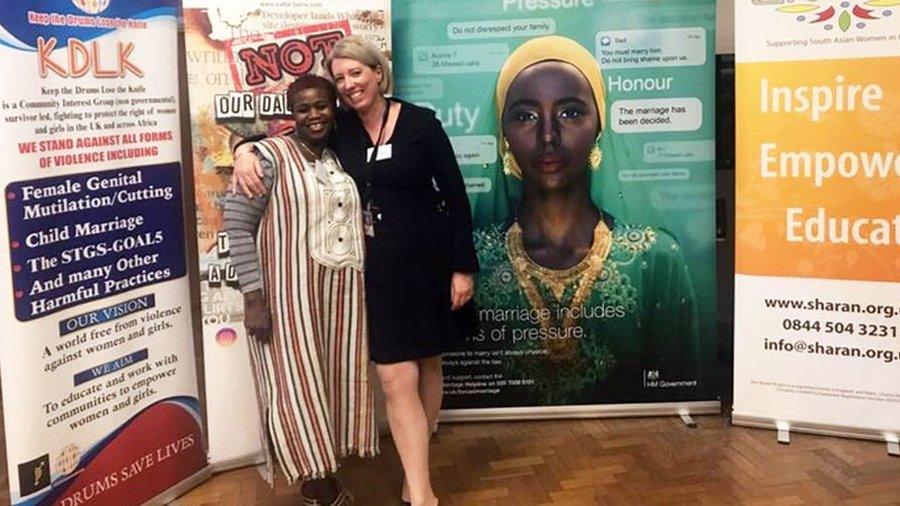
Mrs Karim-Kamara and Det Con Gill Squires have partnered at many training events
Years later in a London hospital, Mrs Karim-Kamara was in labour for four days, unable to given birth because of scar tissue. A nurse came on duty who spotted the problem.
From that point, she said she had "not stopped talking" about female genital mutilation [FGM] and its harmful impact.
"Speaking about my experience is where I find my strength, knowing by talking I will save another girl," she said.
FGM will receive global attention on Monday, when the UN's annual awareness day focuses on, external partnering with men and boys to end it.
Mrs Karim-Kamara includes men in her extensive outreach work in multicultural Peckham, which has among the highest rates of women with FGM in London.
She runs an African food shop, which has posters up about FGM and education workshops which people from communities, including Nigeria, Gambia and Somalia, and their advocates attend.
She set up community organisation Keep the Drums Lose the Knife [KDLK] to also help survivors, many who may not realise the mental and physical impact FGM has had on them.
Over 20 years, she has also trained hundreds of frontline professionals and become an international campaigner.
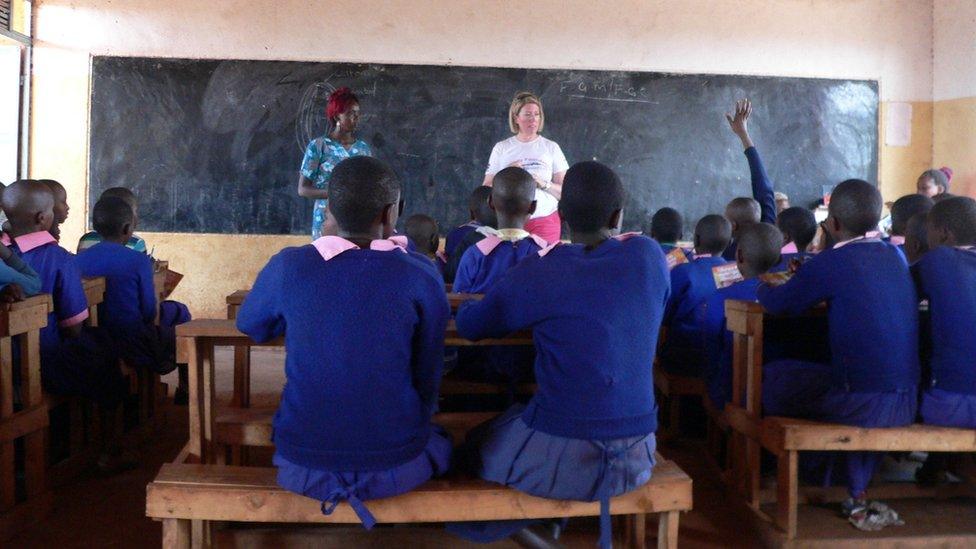
Gill has spoken at schools in Kenya about FGM for the Divinity Foundation
Det Con Gill Squires, who combats FGM in the West Midlands, first met Mrs Karim-Kamara in person at a training event where she told her experience to border force officers trying to protect girls at airports who may be at risk during "cutting season".
"I can't tell you how impactive it was, it was amazing," said the detective.
"She is my hero, she really is."
The pair now work closely together, with Mrs Karim-Kamara among people helping the detective reach communities and train people.
"I never do any training without a survivor's voice because it is so, so powerful and it gives me a voice," said Det Con Squires.
Their powerful accounts about FGM may also give confidence to multi-agency groups wary of "cultural sensitivities".
"This is her giving permission for professionals, from a community perspective, to go and challenge this," said the officer.
Mrs Karim-Kamara said the officer was "her great mentor" and they had built a sisterly relationship.
"As a survivor, doing this work and talking about the experience is part of healing. To have the support of someone like Gill is amazing," she said.

FGM in England - NHS figures April 2021 to March 2022
There were 700 newly-recorded cases of women and girls with FGM between July and September 2022 (which the NHS said was not an indicator, external of how recently it was undergone]
A total of 5,620 women and girls with FGM were seen at appointments between April 2021 and March 2022.
Since the enhanced dataset begun in 2015, NHS trusts and GP practices have recorded 30,335 women and girls with FGM
Since April 2015, 148 NHS trusts and 230 GP practices have submitted one ore more FGM attendance records
Source: NHS Digital

Det Con Squires, 51, took up a new post leading on FGM, forced marriage and honour-based abuse for West Midlands Police in 2009, which she said was a "steep learning curve".
At that time, officers received few reports of such crimes and had little training around them, she said.
She began gathering as much information as possible - using Twitter to connect with people.
The specialist role followed calls for forces to do better on "honour-based" crime following the murder of Banaz Mahmod, from south London, in 2006.
The 20-year-old was killed on the orders of her father and uncle after she left an abusive marriage and fell in love with another man.
Her body was found buried in Handsworth, Birmingham, three months after her disappearance.
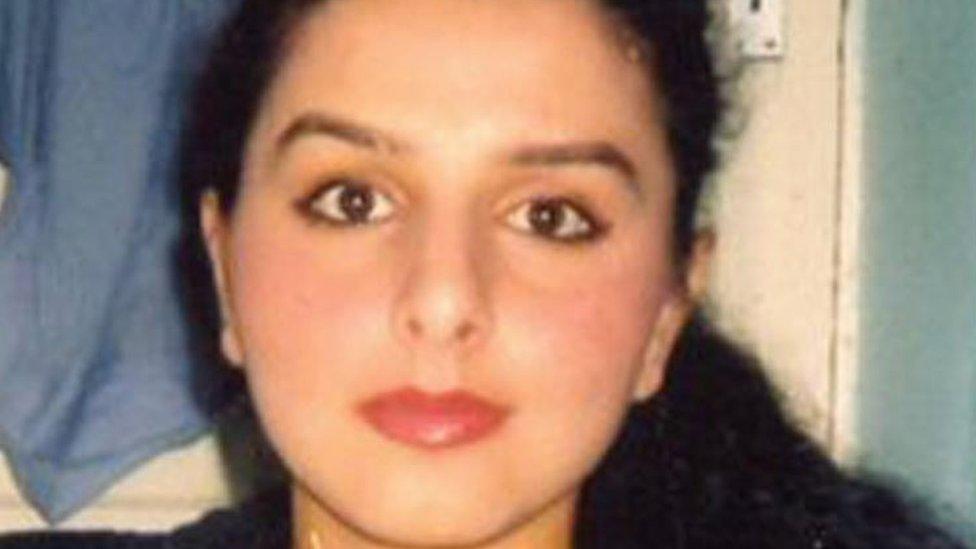
Banaz was killed in 2006
Det Con Squires said FGM can be linked to honour-based crime, as it was in Banaz's case, where it was considered "a rite of passage into womanhood and what's expected before marriage".
"It's all about chastity. It's all about the honour of the family, the honour of the individual," she said.
But there are many varied reasons why it is carried out, according to the World Health Organisation which defines FGM, external as a traditional harmful practice, involving the partial or total removal of the external female genitalia for non-medical reasons.
Det Con Squires is now a leading authority on the subject in the UK and was appointed an MBE in 2018.
She has been involved in government and CPS consultations on legislation, ahead of measures including mandatory reporting and the introduction of FGM Protection Orders to help girls and women at risk.
Alongside this, she has raised funds and been involved in grassroots work with the Divinity Foundation's FGM rescue centre in Amboseli, Kenya.
She believes there has been steps forward over the past 14 years, which had seen large government investment. Operation Sentinel was among drives to raise awareness around such "hidden crimes", in which West Midlands Police staff now receive training.
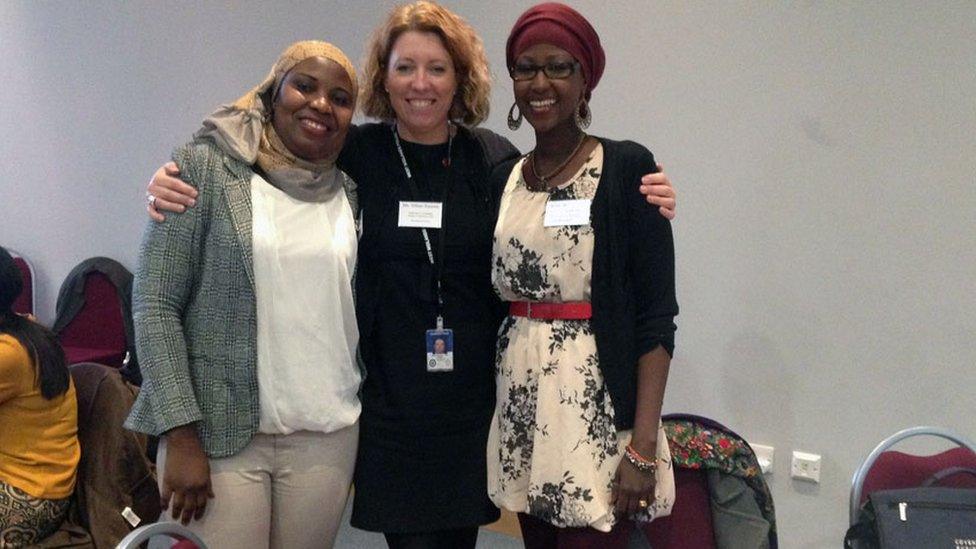
Campaigners including Sarata Jabbi (left) and Hoda Ali have partnered with Det Con Squires
A big legal moment was the first UK conviction for FGM in 2019, when a mother was jailed for 11 years.
Det Con Squires said police "know it's happening" in the UK, but it is very difficult to prosecute for many reasons, including that it is not talked about.
"We will prosecute," she said. "What I would like is for communities to tell us who is doing this in the UK."
As well as continued training to give frontline workers confidence, she said change to stop FGM would come through awareness in schools, charities and grassroots organisations, who she said needed much more funding.
"It's about empowering and supporting those within the communities who are willing to stand up and speak out," she said.
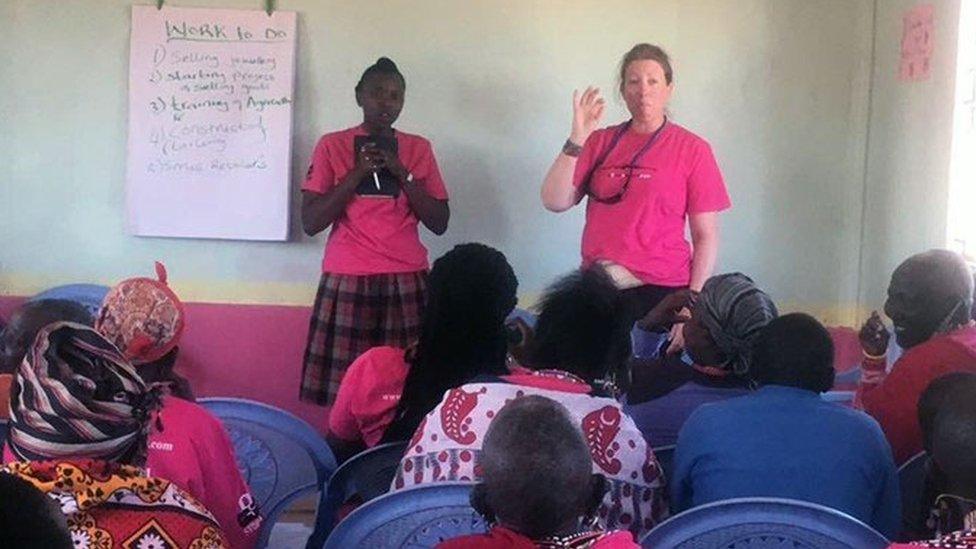
Det Con Squires spoke to "cutters" in Kenya, where FGM is illegal but still takes place
The Home Office said it would be providing £8.4m in funding over the next two financial years to support victims of violence against women and girls, including of FGM.
Meanwhile the government's Violence Against Women and Girls strategy includes a commitment to find community advocates to talk to communities "to explain why 'honour' based abuse crimes are wrong, including FGM".
Mrs Karim-Kamara said she had seen good progress and a "great shift" around FGM in the UK within the communities she works with.
About seven in 10 women had awareness and knew it was illegal. She believes, although there is much work ahead, she can see an end for FGM, at least in the UK.
"A lot of the woman are now able to identify the way FGM has affected them," she added.
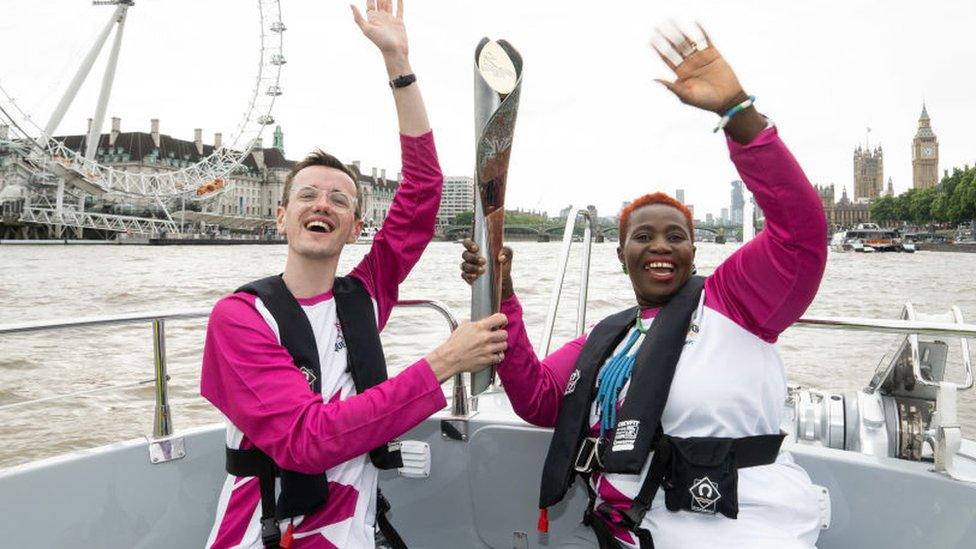
Mrs Kasim-Kamara was a baton-bearer during the Birmingham 2022 Queen's Baton Relay last year
Det Con Squires retires from policing after 30 years' service next month, but her deepening commitment and friendships means her work will continue.
"The survivors are the ones who have put fire in my belly to push this forward and do something for them and for girls to not have to endure this in the first place," she said.
Her plans include returning to Kenya and training other UK police forces with Karma Nirvana.
"I will never be quiet around FGM or forced marriage, it's a passion I feel really, really strongly about."

Follow BBC West Midlands on Facebook, external, Twitter, external and Instagram, external. Send your story ideas to: newsonline.westmidlands@bbc.co.uk, external
- Published24 January 2022
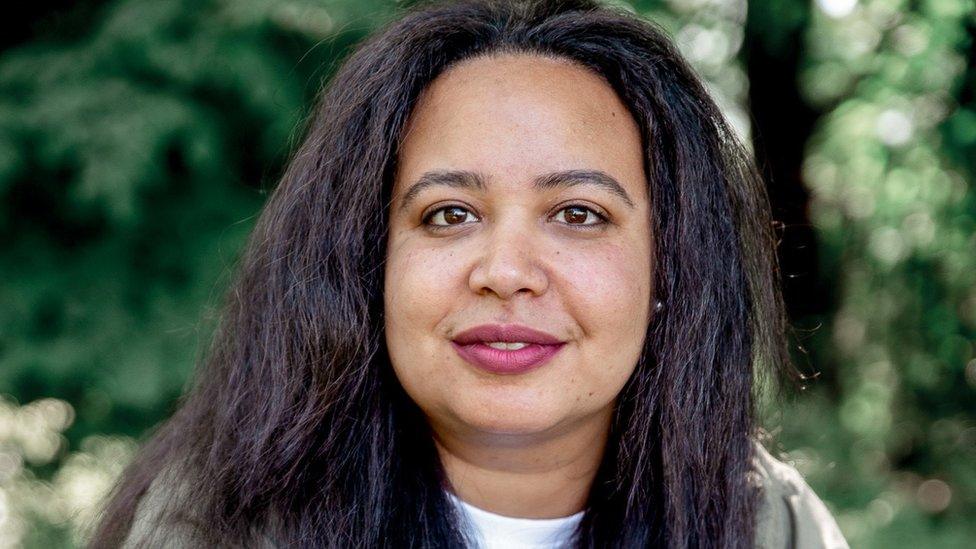
- Published5 September 2021
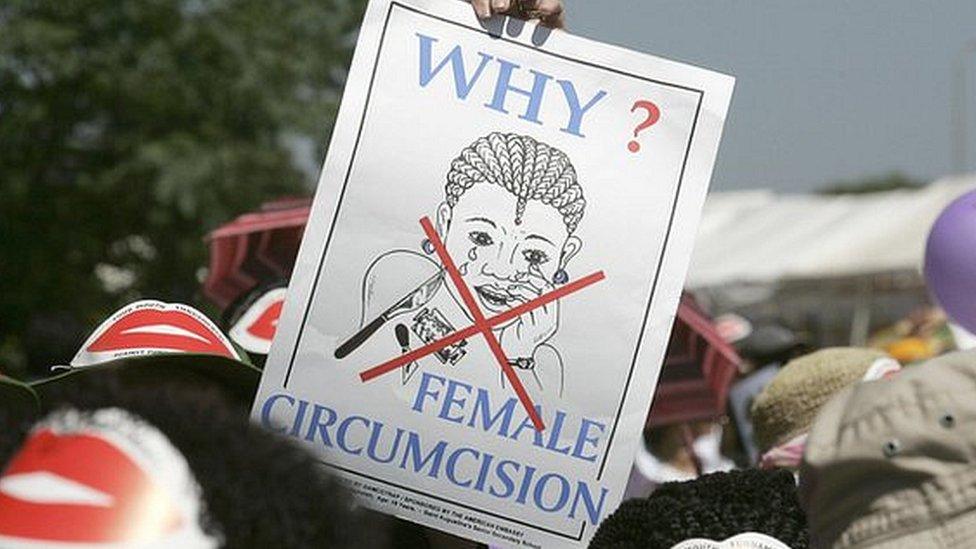
- Published26 June 2021

- Published1 July 2019
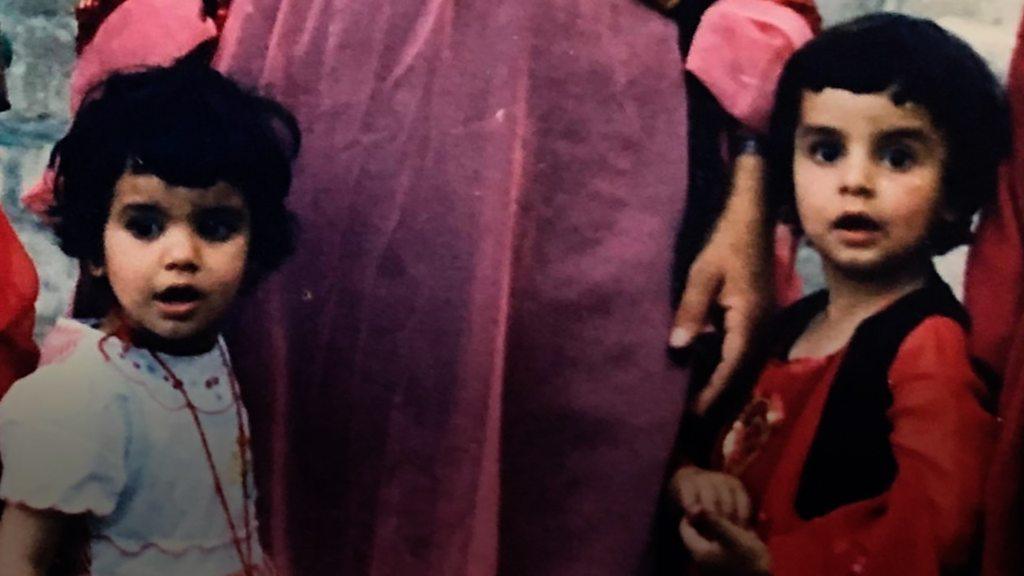
- Published8 March 2019
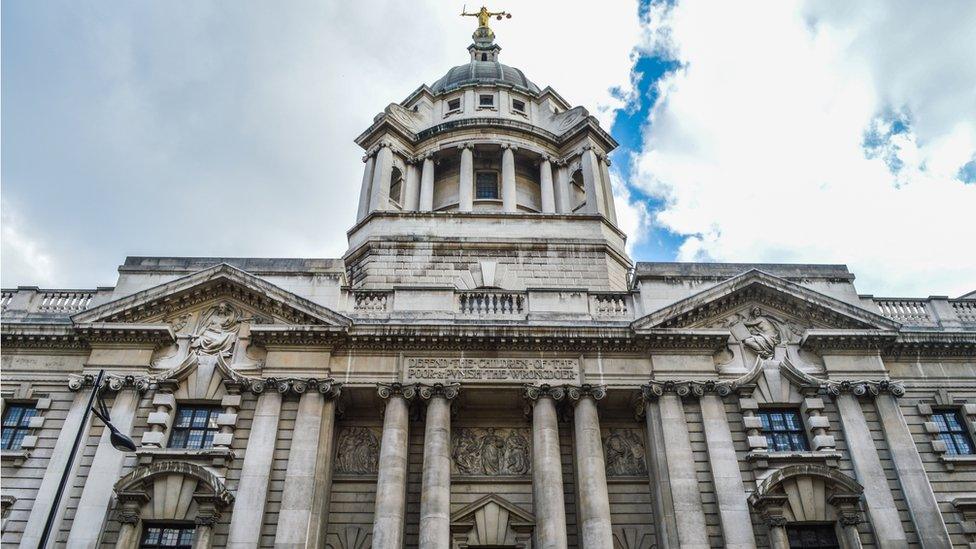
- Published24 February 2019

- Published6 February 2019
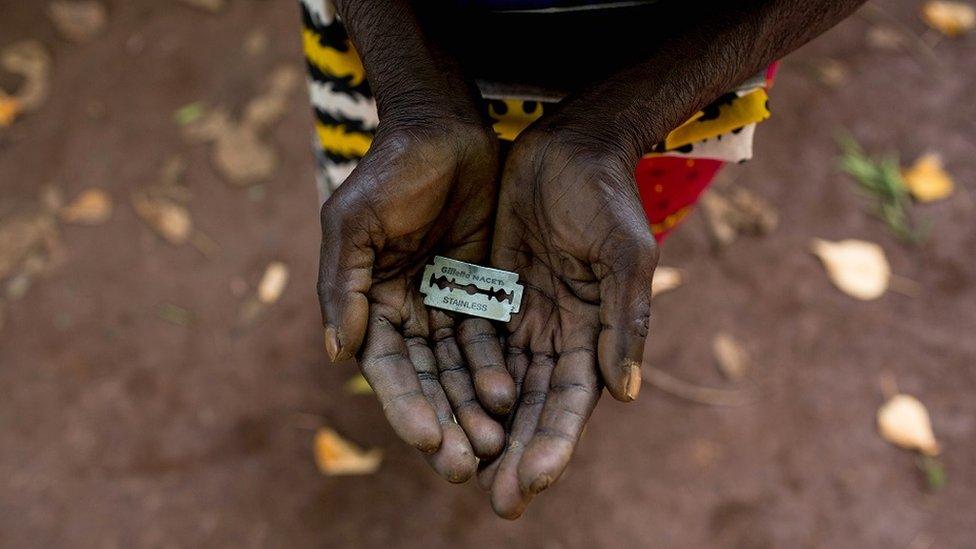
- Published7 September 2018
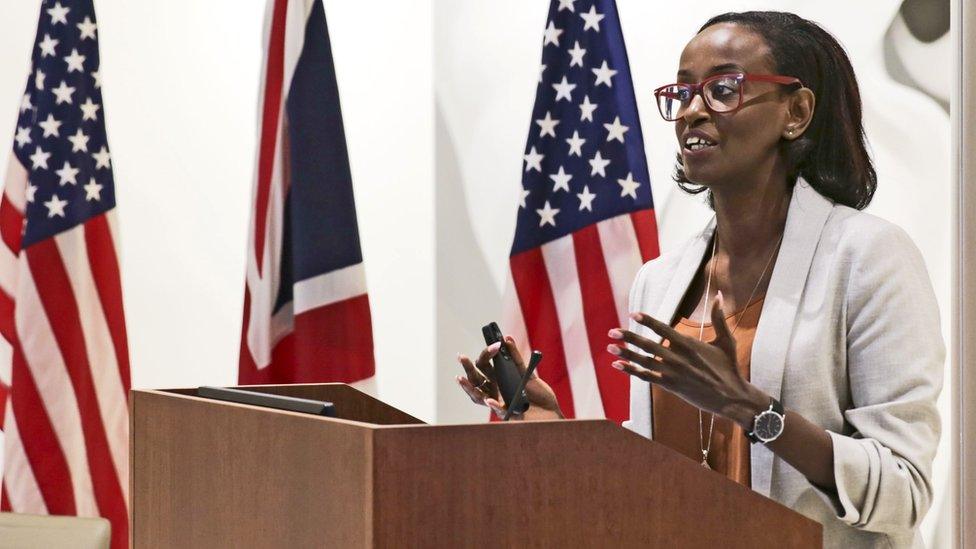
- Published8 December 2015
- Published10 November 2010